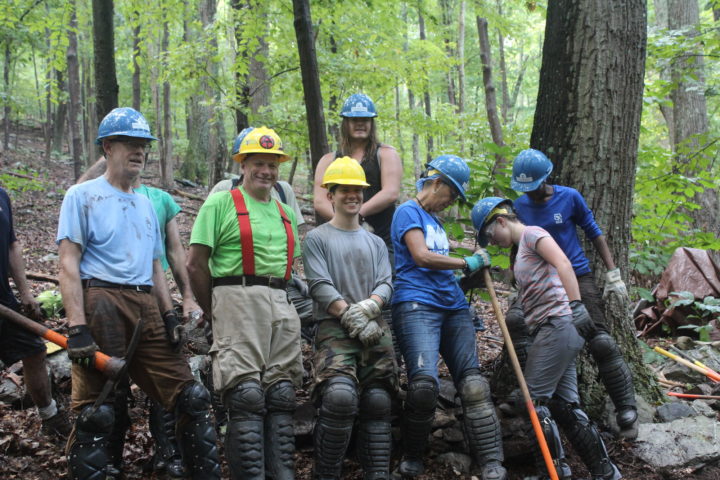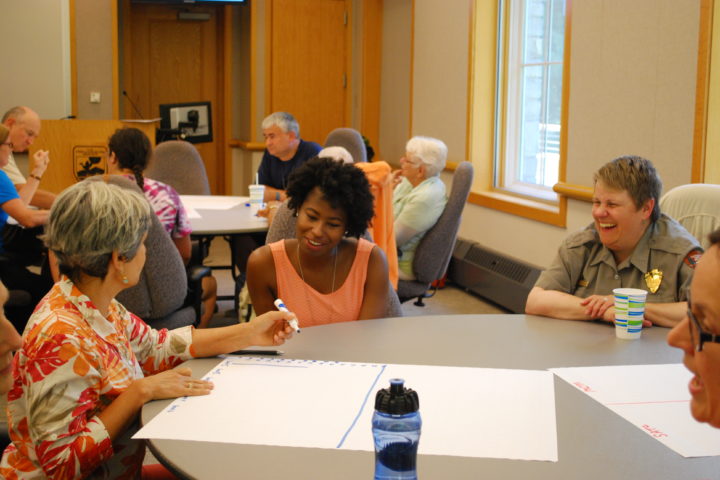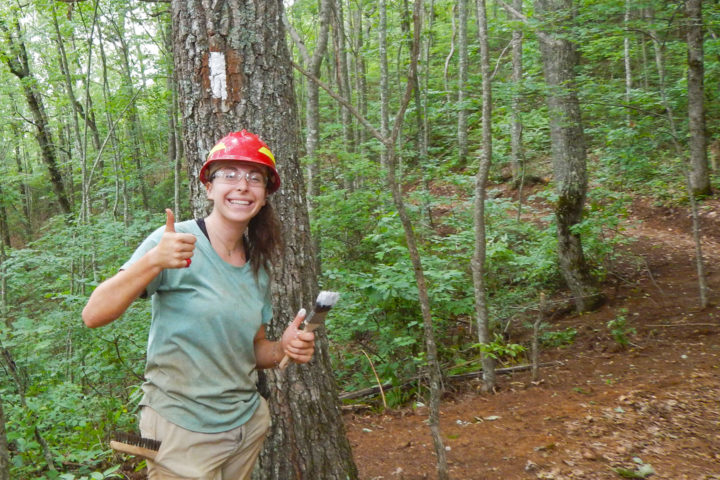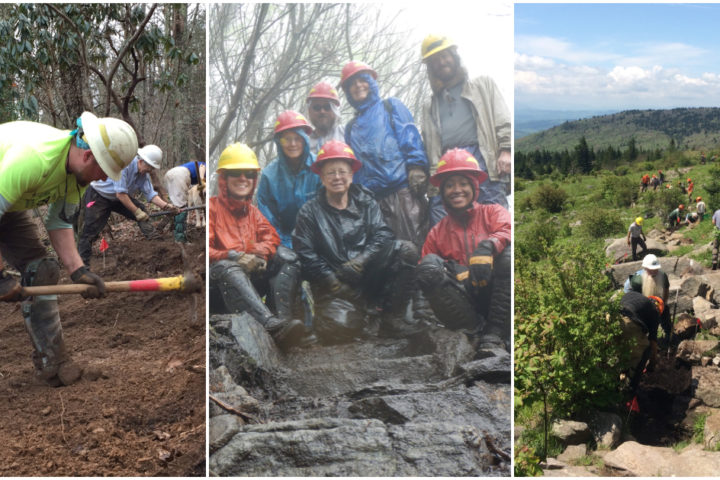Learn More
Trail Crews
Build trails. Build skills. Build friendships.
Appalachian Trail Crews are multi-day experiences to help protect nature through sustainable trail construction and repair. The kinds of large-scale projects that crews undertake also sometimes include work to rebuild bridges, shelters, or privies. Each crew has a schedule each year that describes the work location, work activities, and benefit to the Trail.
The Trail Crew Experience
Trail work is hard, physical labor. It involves working with hand tools and getting dirty is guaranteed. Volunteers work eight- or nine-hour days, rain or shine, regardless of black flies, mosquitos, and other insects. It’s a type-two type of fun that builds community, physical stamina, and feelings of deep accomplishment.
Crew members are asked to live and work in close proximity to other volunteers of all genders and ages and backgrounds. All crew members are expected to participate equally in routine tasks of crew life, including cooking, cleaning, and tool care – both at base camp and the project site.
Is volunteering on a Trail Crew right for me?
Beginners are welcome on A.T. Crews since all the training and tools for the experience is provided. Food is provided, and gear is available for those who may need to borrow a tent or sleeping bag to join the experience. Accommodations at the project sites vary from rustic camping to campground camping, and volunteers should expect a backcountry experience without showers, bathrooms, or running water for the duration of their crew session. Consult with the crew week descriptions to find hike-length distances for the projects that suit your availability.
Learn more about each crew

Volunteer
Rocky Top Trail Crew
Spend eight-days in the Great Smoky Mountains National Park during the peak of leaf-peeping season in September or October. This crew focuses on repairing damaged sections of this high-altitude and remote section of the Appalachian Trail. The views are magnificent, the air fresh, and the challenge of the 10-mile hike to the worksite exhilarating.

Volunteer
Konnarock Trail Crew
Konnarock, ATC’s flagship crew program, is based out of Southwest Virginia and works in Georgia, North Carolina, Tennessee, and Virginia. Join one five-day session or for two consecutive weeks during this Crew that runs from May to August.

Volunteer
Mid-Atlantic Trail Crew
Beat the heat by joining the Mid-Atlantic Crew this fall. Based out of Pennsylvania and tackling projects throughout the region, these sessions run in September and October.
In addition to these crews, there are 31 Trail Maintaining Clubs working up and down the entire Appalachian Trail. Volunteers at these clubs do trail maintenance, monitoring, section planning and a lot more!
Working with ATC’s Crews
A.T. Crews are led by experienced crew leaders. The Appalachian Trail Conservancy hires staff annually to lead the project work of volunteers and support backcountry skill development for people in need of support. Additionally, camp coordinators with the Appalachian Trail Conservancy ensure life at base camp is well organized and that volunteers are well-fed. ATC hires for these roles annually each winter, please visit www.appalachiantrail.org/careers to learn more about applying.
Experience as a volunteer on crew has led to employment opportunities with ATC as a member of crew program staff. The skills gained while volunteering prepare participants for work with ATC or other conservation and recreation management positions.
Discover More

Learn More
About Volunteering
Learn more about volunteering on the Appalachian Trail and begin a volunteer journey that matches your skills, interest, and expectations.

From maintenance of the footpath and its facilities to greeting guests
Volunteer Opportunities
The Appalachian Trail (A.T.) would not exist without volunteers.

Volunteer
The Next Generation Joins Konnarock
The Next Generation Joins Konnarock. Read about their experience.
